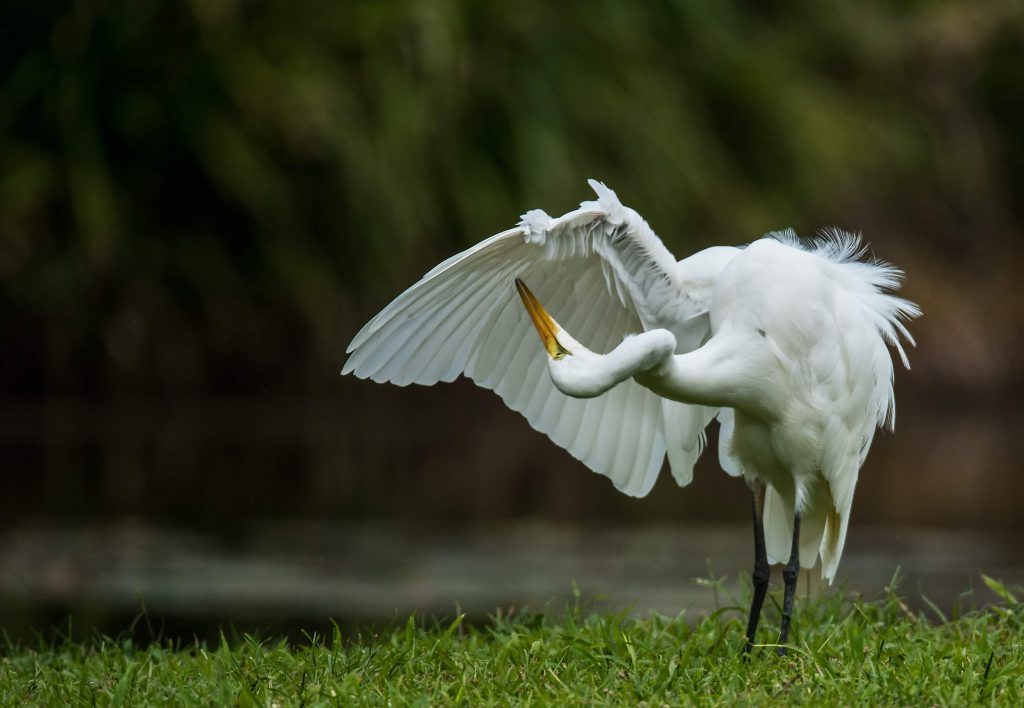What is Mindfulness? What can we learn from Buddha’s mindfulness to live a better modern day, practical life?
The meditation, Yoga, and spirituality guru Osho said that when you are not thinking about the past or future or now contains all the time and there is no then — when a cuckoo calling, a train passing, a dog barking, is all you hear — when this is all and there is no that — when the world here is your whole reality and there is no there — you are in the state of sammasati or mindfulness.
You are absolutely present. Then you reflect and engage in reality without any distraction or expectation.
Mindfulness or awareness is to know what you are doing and why you are doing it.
It is a way to calm the conflicting voices within us and to bring them to one. A writer I follow said in this medium article that awareness is a state of mind that aims to understand reality as close to the truth as possible.
Being mindful is being present in each moment to be able to deal with the moment in the most graceful manner.
Related Read: Introduction to Yoga, and practicing yoga in Dharamshala – Yoga is one of the practices that can help us become mindful
Why is it not so easy to achieve mindfulness?
Conflicts within us and contemplation keep us away from mindfulness.
Some of Osho’s speeches were compiled in a book The Buddha said — meeting the challenge of life’s difficulties wherein he simplified Buddha’s teachings so that they could be applied to day to day life.
Osho said in this book that three layers compose our personalities: the bottommost layer is a child, then a parent, and then an adult. Humanistic psychology talks about this triangle of PAC — parent, adult, child, as well.
The child is spontaneous and irrational. If he wants something, he wants something. When we listen to our heart and desires we act like children. We get perturbed and angry over tiny disagreements.
The child is your base.
The Parent comes to discipline and to caution us. When we try to keep ourselves in control of the situation, think of right and wrong, what to do and what not to do — we act as a parent.
Then comes adult — who thinks his reason has come of age and he can think on his own. When we try to reason with everything — we act like an adult.
Desire, discipline or caution, and reason pull us in different directions all our lives — this leads to a basic conflict in our moments of action.
But these present actions or decisions are not the only problem. Our mind also indulges in the contemplation of the past and the future.
Phillip Moffitt, founder of the Life Balance Institute and teacher of Vipassana meditation, tells that mind is almost always thinking and mostly about the past or future in the form of remembering, contemplating, or fantasizing.
While you are lost in such thoughts, you start dissolving away from reality.
Sometimes when I let my thoughts wander away in some happy or unhappy past experiences, I can no longer pay full attention to what is required out of me at that moment.
Also Read: An Open Letter to My Mind
How to find this center and state of mindfulness?
Gil Fronsdal, a teacher of Zen and Vipassana, a Soto Zen priest, and a Theravada monk, said that as a person’s walking practice may vary in frequency and intensity as per the desired goal, say building stamina or strolling, similarly, we can practice awareness in different ways.
I am not going to list out the various meditation techniques as they are already all over the internet. My focus is on practically dealing with day to day situations and making life and living with people easier.
We have to be at the center of the triangle to act in accordance with all three, in a balanced way.
Osho rightly pointed out that we don’t have to be rational always. We have to be reasonable, which means we also have to be aware of and accept the irrationality.
The first step towards achieving mindfulness is accepting the irrationality. Then nothing can disturb you as you are open to all possibilities.
The second step is of being able to step away from any situation.
Say you have a slight disagreement with your partner.
Try not to get angry, or control the situation, or justify your anger. Step away. Stand on a hilltop from where you can get a 360 view of the situation and take some time to think.
My manager used to get so angry that he used to kick the chair, throw the computer accessories around, and shout.
If you are completely losing control of the situation, it means you are not at all aware. Being mindful is to realize what is happening when it is happening so that you can maneuver the situation better.
Be aware enough to step away.
The third step is to realize your flaws.
Having flaws is human but knowing about them is important.
You can become defensive and rationalize all your errors. Don’t let yourselves getaway, accept your mistakes. That’s the only way you can improve yourself.
My friend’s father is completely unaware of his ego and his disrespectful words. We feel hopeless as he cannot fix anything as he has not even realized his problems yet.
The fourth step is not to overthink.
Osho said that thinking too much about your problem is also a problem.
You would have this urgency of rethinking because it makes you feel that you are resolving it by thinking about it. But actually, the reverse is happening. The issue is feeding upon you. It is a false reassurance.
If you continuously think of anger, you get angrier.
There is no need to be over concerned or obsessed with your small things — they are small.
Take a note of it and do something which channelizes your energy somewhere else. You would soon forget about the incidence.
Also Read: How can you Manipulate Your Consciousness – To Live Better
One day, a friend of mine said something which upset me. I realized I was angry but I still said something which I regret later. Then as soon as the incident was over, I was analyzing it. I discussed it with my friend.
The problem with this scenario was that I inflated it and let it ruin my day. I was imprisoned by it.
Of course, I was aware of my feelings but being conscious of your emotional reaction is not mindfulness.
I would have been fully aware when instead of getting angry at that moment I would have tried to reason it with the other person — while maintaining my calm.
Try to step away from the situation, if you could not, relive the experience as it happened, think about how you could have handled the situation, and if you were wrong somewhere.
Then, have trust in yourself and the world, and let go. Come back to reality.
All these four combined steps — accepting irrationality, placing yourself out of the situation, realizing your flaws, and not over thinking — are letting you converge your thoughts into one, are letting you centralize to that center.
Also Read: 15 things you should worry less about
How to control mind — the game player? How to root ourselves in this current moment which we all seem to let go by?
I am often lost in the thoughts of past and future, as I mentioned above.
Phillip Moffitt suggests us to analyze these thoughts.
He asks, “Do you find them pleasant or unpleasant? What happens to them as you focus on them? Do you get lost in them and lose your mindfulness? When you bring up fear or worry over and over again, is it unpleasant or does it induce a kind of reassurance? Is it false reassurance? Do you get anxious?”
Find the answers to these questions to live better and wiser. For example, I know thinking about some past conversations with my parents would upset me. I stay away from those thoughts. Also, that is how my parents think and they would have reacted the same no matter who was on the other end. Most of what we take personally is not about us.
We have to control and train our mind by analyzing our thoughts. That would help us come closer to reality and keep us at the moment.
Also Read: Understanding what’s important in Life– With The Little Prince of Antoine de Saint-Exupéry
Why do we have to go through this autopsy? Can’t we stay the way we are?
Working, earning money, and fulfilling day to day responsibilities are not the only important things. Understanding ourselves, being patient, calm and peaceful, and gracefully dealing with what life puts at us every day is more important — which mindfulness helps us achieve.
When you are present in each moment, you are relieved. Neither are you thinking about the past — which does not exist — nor the future — which is not yet there.
You are naturally at peace because you fulfill what is expected out of you at that moment without burdening your mind and heart with all the unwanted thoughts. You see a deeper reality.
This Huffington post rightly said mindfulness isn’t about being happy all the time. It’s about acceptance of the moment we’re in and feeling whatever we feel without trying to resist or control it.
When you give your best, you also naturally move towards success.
Your best behavior also keeps your loved ones around you.
Focus on what is important and accept failures.
Make the best out of the present moment. Kill the extra noises.
Have a clear perspective of your being. Find that center. Be grounded in it. Control yourself from it.
Find your own commandments to inner peace and joy.
I liked how this wiki article said, “Spend some time alone, sitting quietly, and focusing on experiencing the world around you exactly as it is.”
Do you have any tips to share about mindfulness? What challenges did you face while practicing mindfulness?
Disclaimer: This article includes affiliate links to products I love. If you choose to click through and make a purchase, I will earn a little bit at no extra cost to you. Thank you.
If you liked Buddha and Osho inspired lesson on What is Mindfulness, please pin it and share with the world.
*****
My much-awaited travel memoir
Journeys Beyond and Within…
is here!
In my usual self-deprecating, vivid narrative style (that you love so much, ahem), I have put out my most unusual and challenging adventures. Embarrassingly honest, witty, and introspective, the book will entertain you if not also inspire you to travel, rediscover home, and leap over the boundaries.
Grab your copy now!
Ebook, paperback, and hardcase available on Amazon worldwide. Make some ice tea and get reading 🙂
*****
*****
Want similar inspiration and ideas in your inbox? Subscribe to my free weekly newsletter "Looking Inwards"!



Simple guidance to confuse mind. Thanks Priyanka
Thank you.
I love this post Priyanka! Being mindful is certainly difficult to achieve, but once you can become comfortable with yourself and your surroundings, happiness truly shines through! We all have a purpose, but it’s up to us to find it XX
Thanks for reading Kate. yes, it is upto us to find it.
Stay connected 🙂